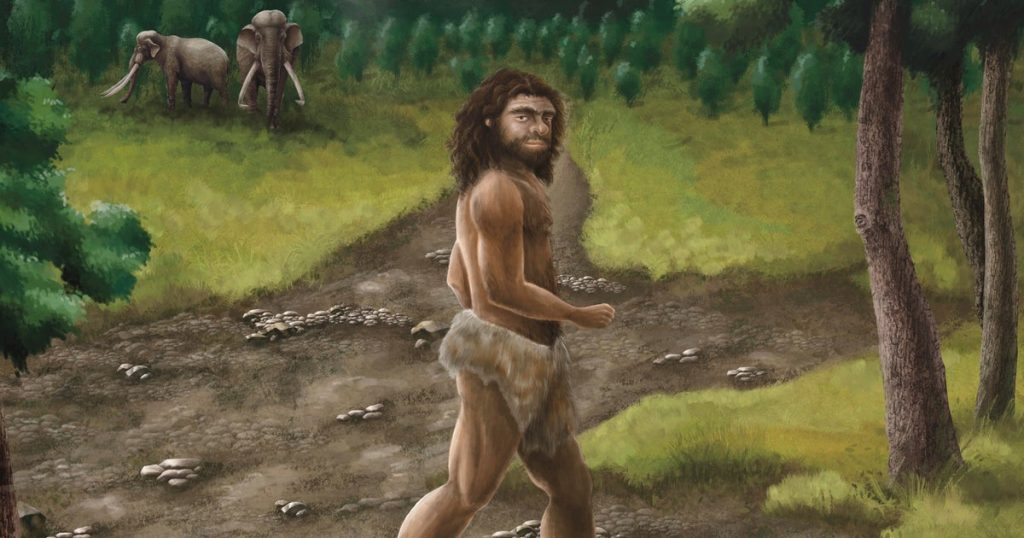Scientists have announced the discovery of an ancient jawbone in Taiwan, believed to belong to the Denisovans, an enigmatic group of early human ancestors closely related to Neanderthals and modern humans. This finding, reported recently, helps to broaden the known geographical range of Denisovans and sheds light on their adaptability to diverse environmental conditions. With previous known Denisovan fossils found primarily in Siberia and Tibet, this jawbone presents new avenues for research into this elusive group of ancient humans.
| Article Subheadings |
|---|
| 1) Discovery of the Ancient Jawbone |
| 2) Significance of the Findings |
| 3) The Enigmatic Nature of Denisovans |
| 4) Ancestral Legacy and Extinction |
| 5) Future Research Directions |
Discovery of the Ancient Jawbone
The ancient jawbone was unearthed during a fishing operation that dredged the seafloor in the Penghu Channel, located near the Taiwan Strait. Initially recovered in the early 2000s, the fossil passed through several hands before being donated to Taiwan’s National Museum of Natural Science in 2008. Experts speculated on its origin until recent advancements in technology allowed researchers from Taiwan, Japan, and Denmark to analyze the fossil for protein sequences.
Significance of the Findings
The identification of the jawbone as potentially belonging to a Denisovan is important as it expands the geographical boundaries of their known existence. Prior to this discovery, Denisovan fossils had only been confirmed in restricted regions of East Asia, including Siberia and Tibet. The analysis revealed that proteins extracted from the jawbone resembled those found in previously studied Denisovan fossils, lending credence to the conclusion that Denisovans once roamed the area now known as Taiwan during the Pleistocene era, which spanned from approximately 2.6 million to 11,700 years ago.
The Enigmatic Nature of Denisovans
Denisovans are an extinct lineage of hominins that lived alongside both Neanderthals and modern humans. Much remains unknown about their daily lives, habits, and social structures due to the scarce nature of their fossil record. The deputy director of the Graduate University for Advanced Studies in Japan, Takumi Tsutaya, noted the limited number of confirmed fossil finds, which include only partial jawbone fragments, a few teeth, and part of a finger bone. These minimal findings highlight the challenges faced by researchers aiming to understand this mysterious group.
Ancestral Legacy and Extinction
The existence of Denisovans sheds light on the complex interactions among early human species. Evidence suggests that Denisovans, alongside Neanderthals and Homo sapiens, coexisted in Eurasia at one time. Remarkably, genetic studies have shown that some contemporary human populations in East and Southeast Asia carry Denisovan ancestry, a testament to the interbreeding that took place in prehistoric times.
Despite this genetic legacy, the reasons behind the Denisovans’ extinction remain uncertain. As said by Frido Welker, a co-author of the recent study, the lack of sufficient archaeological and fossil evidence limits our ability to draw firm conclusions about their disappearance. Nevertheless, the genetic traces that persist in today’s populations signify their prolonged impact on human evolution.
Future Research Directions
Given the preliminary findings and the ongoing debates about the classification of the jawbone, researchers are eager to explore additional methodologies that might further clarify the fossil’s lineage. Rick Potts, the director of the Smithsonian Institution’s Human Origins Project, voiced cautious optimism regarding the recent study. He articulated a desire for more extensive data to substantiate the identification of the jawbone as Denisovan, emphasizing the need for a more comprehensive dataset to provide insight into both the traits of the Denisovans and the reasons for their extinction.
Although the condition of the fossil posed challenges in extracting ancient DNA, the researchers remain determined to apply new technologies aimed at understanding this segment of human history more clearly. The potential to extract additional proteins or other biological materials in future studies may offer valuable information related to Denisovan physiology and adaptability.
| No. | Key Points |
|---|---|
| 1 | A newly discovered jawbone in Taiwan is likely from the Denisovans, expanding their known range. |
| 2 | Previous Denisovan fossils were mainly found in Siberia and Tibet. |
| 3 | Researchers extracted protein sequences linking the jawbone to Denisovans. |
| 4 | The origins and extinction reasons for Denisovans remain largely speculative. |
| 5 | Contemporary East and Southeast Asian populations carry Denisovan ancestry. |
Summary
The revelation regarding the jawbone discovered in Taiwan marks a significant advancement in our understanding of Denisovans and their historical presence in East Asia. As researchers continue to analyze this remarkable find, it opens up new avenues of exploration concerning ancient human ancestry and interactions. The ongoing efforts to uncover the mystery surrounding Denisovans and their eventual extinction not only enrich our knowledge of human evolution but also illuminate the legacy they left in today’s genetic landscape.
Frequently Asked Questions
Question: Who were the Denisovans?
Denisovans were a group of early human ancestors that lived alongside Neanderthals and modern humans, known primarily from a few fossil remains.
Question: Why is the discovery of the jawbone significant?
The discovery of the jawbone is significant as it expands the known geographical range of the Denisovans and offers insights into their adaptability and interaction with other hominins.
Question: What is known about Denisovan extinction?
Much is still unknown about why Denisovans went extinct. Researchers highlight the scarcity of archaeological evidence, leading to speculation about their disappearance.
